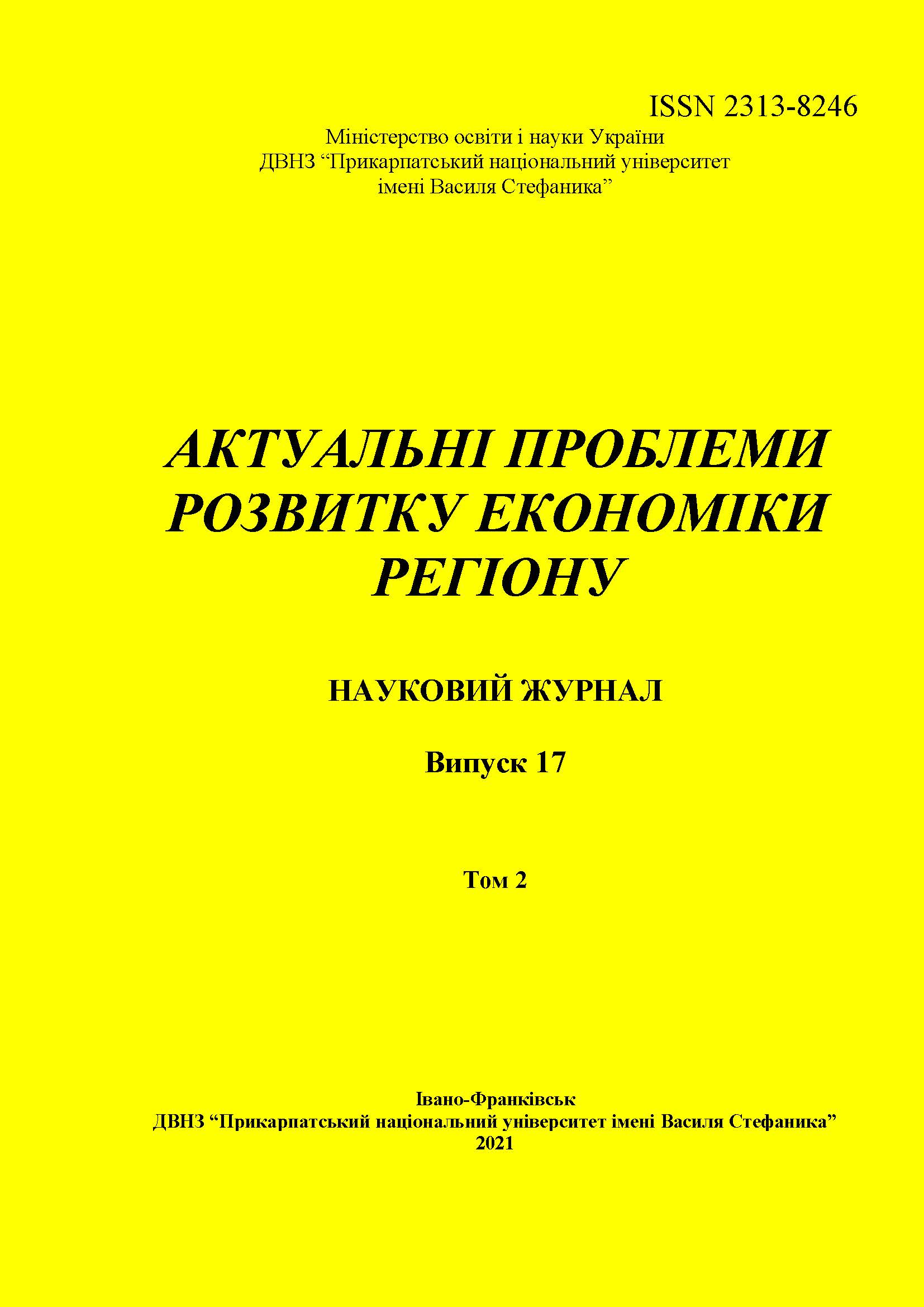ENVIRONMENTAL STARTUP IN FASHION INDUSTRY
DOI:
https://doi.org/10.15330/apred.2.17.273-281Keywords:
ecological startups, fashion industry, eco-brands, eco-design, successful value, socially responsible businessAbstract
The article explores and analyzes environmental startups in the fashion industry, namely: the Ukrainian brand Motrya, Panove, Défi and Framiore, which became one of the eight Ukrainian innovative companies funded by the Ukrainian Startup Fund, as well as other Ukrainian startups that have conquered the market and position themselves as "eco" in the fashion industry. However, not all environmental startups in the fashion industry are successful and this is not surprising, because the things they offer us are not cheap and not always manufacturers can convey to consumers the specific values that this product creates. That is why by successful value we mean not only what is beautiful, fashionable, not only the use of natural or organic materials, but the environmental friendliness and aesthetics of their processing and further operation, the use of technologies that help minimize the environmental footprint. Moreover, these startups must take care of the environmental friendliness of delivery, further processing of things as part of the production cycle, create distribution channels that will be most acceptable to a particular consumer in a given period of time and all will be financially effective. Therefore, currently, there are only a few such brands in Ukraine. After all, the creation of such a company requires considerable effort, deep philosophy, understanding of all stages. And what's worse: truly established brands mostly sell their products abroad. Therefore, in this situation it is necessary to sit down at the negotiating table with the state and prescribe rules on how to green the light industry. The advantages of implementing environmental business ideas in startups include: improving the image through environmental responsibility of doing business; increasing the competitiveness of the business entity in domestic and foreign markets; resource saving and reduction of energy consumption of production; making quality clothing that preserves naturalness is comfortable and hypoallergenic; increasing employment and population development; formation of eco-thinking and eco-culture. Thus, the policy of socially responsible business, because this is what we consider the development of environmental startups in the fashion industry, has obvious benefits for all market participants. The consumer, as a member of society, satisfies his need to be able to buy a quality, stylish, environmentally friendly and ergonomic thing. Society, in turn, receives an improvement in the environmental situation and the conservation of resources, the creation of new jobs, staff training and care for the health of employees and their families. The company is rewarded not only by creating a favorable public opinion, but also by increasing the recognition and loyalty of customers, and, consequently, by improving financial performance.
References
2. Veklych, O.O. “Sector of ecological goods and services in Ukraine - special state patronage.” Ukrainian economy, no. 3, 2010, pp. 27-35.
3. Galushko, K.O., and N.D.Kondratenko. “Features of production of sustainable clothing and its strategic marketing in the field of fashion.” Technology and design, no. 3, 2020. Er.knutd, er.knutd.edu.ua/ bitstream / 123456789/16403/1 / td_2020_N3_08.pdf. Accessed 09 Oct. 2021.
4. Ilyashenko, S.M. “Environmental friendliness as a factor of product competitiveness.” Current economic problems, no. 9, 2012, pp. 143-150. Repository. kpi, repository. kpi.kharkov.ua/bitstream/KhPI-Press/45242/1/ Accessed 09 Oct.2021.
5. Kvasnytsia, R. “Ecological and ethical concepts in the fashion industry and presentation spaces for fashion innovations.” International Academy Journal Web of Scholar, no. 2, 2019, pp. 23-28. DOI: https://doi.org/10.31435/rsglobal_wos/28022019/6343. Accessed 09 Oct. 2021.
6. Latov, Yu. “Fashion industry.” Krugosvet, www. krugosvet.ru/enc/gumanitarnye_nauki/ekonomika_i_pravo/INDUSTRIYA_MODI.html. Accessed 09 Oct.2021.
7. Meffert, G., and M. Kirgeorg. Green marketing. SPB.,Peter, 2002.
8. Primak, T.O. Ecomarketing: world and Ukrainian realities. Problems and prospects of market-oriented management of innovative development. Sumy, Papyrus, 2011.
9. Prokopenko, O.V. Ecologization of innovative activity: motivational approach: monograph. Sumy, University Book, 2008.
10. Prokopenko, O.V., and O.D. Alekseenko. “Analysis of consumer readiness to pay a price surcharge for the environmental friendliness of goods of different types.” The mechanism of economic regulation, no. 2, 2006, pp. 33-38.
11. Chuprina, N.V., and T.S. Tsaruk. “Synthesis of outrage and minimalism in modern collections of eco-clothing.” Culture and modernity, no. 2, 2017, pp. 81-85. Er.knutd, er.knutd. edu.ua/bitstream/123456789/9000/1/20180326_303. pdf. Accessed 09 Oct. 2021.
12. Claudio, L. “Waste Couture: Environmental Impact of the Clothing Industry.” Environmental Health Perspectives, vol. 115, no. 9, 2007. DOI: https://doi.org/10.1289/ehp.115-a449. Accessed 09 Oct. 2021.
13 “How to be a stable brand from “Franika” and convey important cultural messages. Celement, celement.com.ua/archives/492. Accessed 09 October 2021.
14 “Conscious fashion is a new trend that has conquered UFW 20-21.” Kievvlast, kievvlast.com.ua/style/svidoma-modanovij-trend-yakij-pidkoriv-ufw-20-21. Accessed 09 Oct. 2021.
Downloads
Published
How to Cite
Issue
Section
License
- Authors retain copyright and grant the journal right of first publication with the work simultaneously licensed under a Creative Commons Attribution NonCommercial NoDerivs 4.0 Unported License that allows others to share the work with an acknowledgement of the work's authorship and initial publication in this journal.
- Authors are able to enter into separate, additional contractual arrangements for the non-exclusive distribution of the journal's published version of the work (e.g., post it to an institutional repository or publish it in a book), with an acknowledgement of its initial publication in this journal.
- Authors are permitted and encouraged to post their work online (e.g., in institutional repositories or on their website) prior to and during the submission process, as it can lead to productive exchanges, as well as earlier and greater citation of published work (See The Effect of Open Access)


